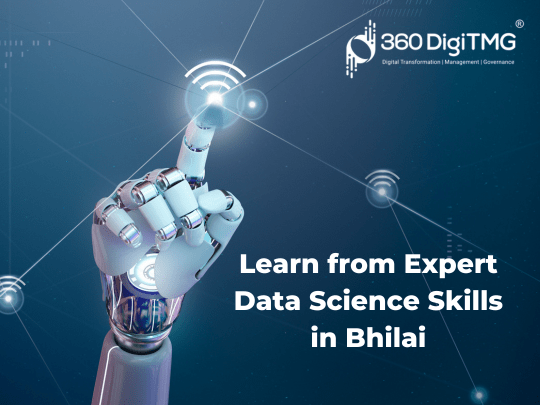
The time it takes to learn data science can vary widely depending on several factors, including your prior background, the depth of knowledge you aim to acquire, and the resources you have available. Here are some key considerations:
Prior Background:
If you already have a background in mathematics, statistics, and programming, you may be able to learn data science more quickly. If you're starting from scratch, it might take more time to grasp the foundational concepts.
Learning Resources:
The quality and comprehensiveness of the learning resources you choose matter. Formal education programs, online courses, books, and hands-on projects can all contribute to your learning. Interactive platforms like 360digitmg and data science bootcamps can offer practical experience.
Time Commitment:
The amount of time you can dedicate to learning each day or week is crucial. Learning data science is often not a quick process, and consistency in studying and practicing is essential.
Depth of Knowledge:
Data science is a broad field that includes various subdomains such as machine learning, statistics, data analysis, and data engineering. The more in-depth you want to go into each of these areas, the longer it may take.
Real-world Application:
The ability to apply what you've learned in real-world scenarios is crucial. This involves working on projects, participating in competitions, and gaining practical experience.
As a rough estimate, it might take anywhere from a few months to a couple of years to become proficient in data science. Some people learn the basics relatively quickly and then deepen their knowledge over time through practical experience and ongoing learning. Check oout the Data Science Certification in Bhilai
Remember that learning is a continuous process in data science, given the field's dynamic nature. Technologies and methodologies evolve, and staying up-to-date is essential. Additionally, your learning journey might not have a fixed endpoint, as there's always more to explore and new skills to acquire.
Statistics is fundamentally important in data science. Here are several reasons why:
Inferential Statistics:
Data science often involves making inferences about a population based on a sample of data. Inferential statistics provides the tools and techniques to draw conclusions about a larger group from a subset of the data.
Probability:
Probability theory is foundational to understanding uncertainty and randomness in data. This is crucial for building models that can make predictions or classifications.
Hypothesis Testing:
In data science, you may need to test hypotheses about data, such as whether there's a significant difference between two groups or if a pattern observed is statistically meaningful. This is common in A/B testing and other experimental design scenarios.
Regression Analysis:
Regression is a statistical technique used in data science to model the relationship between variables. It helps in understanding the strength and nature of relationships, which is crucial for predictive modeling.
Descriptive Statistics:
Descriptive statistics are essential for summarizing and describing the main features of a dataset. This includes measures like mean, median, mode, and various measures of variability.
Bayesian Statistics:
Bayesian methods, which involve updating probabilities as new data becomes available, are gaining importance in data science. They are used in various applications, including machine learning and decision-making.
Model Evaluation:
Evaluating the performance of models often involves statistical metrics, such as accuracy, precision, recall, and F1 score. These metrics help assess how well a model is performing and guide improvements.
Understanding Distributions:
Data scientists need to understand the distribution of data, and statistical distributions are often used to model and analyze these patterns.
Sampling Techniques:
Knowledge of various sampling techniques is essential to ensure that the data used for analysis is representative of the larger population.
Data Exploration:
Exploratory Data Analysis (EDA) is a critical phase in any data science project. Statistical techniques help in uncovering patterns, trends, and outliers in the data.
In summary, statistics is not just a tool in the data scientist's toolkit; it's a foundational element that underpins the entire data science process. It provides the means to draw meaningful conclusions from data, make informed decisions, and build reliable predictive models.
Kickstart your career by enrolling in this Data Science Course in Bhilai
Navigate To:
360DigiTMG - Door No: 244, Zonal Market,Sector 10, Bhilai, Dist-Durg,
Chhattisgarh - 490006
Email: bhilai@360digitmg.com
Phone:+91 98866 28363/ +91 99816 17903